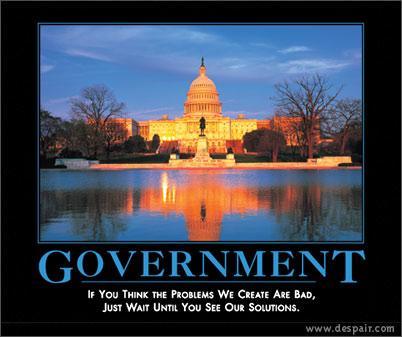Still reeling from regulations pushed by privacy zealots and the usual agitprop, here comes a disturbing development: a new digital advertising tax that continues the tradition of corrupt and poorly managed state governments to never be accountable nor live within their means. Here is the story from David McCabe @ The New York Times, Maryland Approves Country’s First Tax on Big Tech’s Ad Revenue.
A terrible precedent, with loads of unintended consequences it is too bad the authors could only find one tiny quote from the IAB on the considerable counter-argument to an advertising tax. Here are a few thought-starters:
- More expensive ads: Regulation has a way of ensuring that the what is being regulated will be of poorer quality/worse level of service and of course cost more. Economist, Dan Mitchell nicely shows the trend. He could have added: K-12 education, drugs, banking and insurance.
- More central planning, less free markets: It is interesting that digital ad revenue is being taxed in such a punitive way but that is proudly mentioned as a feature not bug, i.e. picking winners and losers. Do legacy media like broadcast, cable nets, radio, newspapers and magazines get a pass?
- Collateral damage: What about the impact on the rest of the ad tech stack and media agencies that derive their revenue from a share or split of the ad revenue (as opposed to licensing fees)? More expensive advertising from advertisers will mean less advertising.
- Tip of the iceberg: Looking past, Maryland: what about when the other 49 states that couldn’t balance their books before Covid that now decide to “get theirs”? Surely the Feds will want in on this.
- Reverse uno card: Can’t wait for the first of rent-seekers say they want the tax…this typical counter-move is usually for brownie points while raising the costs for everybody else; that of course, stifles competition: think Amazon or unions being in favor of higher minimum wages.
- Subsidies. Will “big tech media” then become too “big to fail” and require bizarre subsidies?
- Hidden-costs. How will the new bureaucracy be administered? If the new department is paid for by the taxed then you can be sure there is an incentive to pack it with cake jobs filled by people looking to keep busy finding more to tax. Bottom-line: More civil servant jobs no doubt.
- Anti-growth. Advertising facilitates business growth for the advertisers; that is why they do it. Unfortunately, when you tax something you get less of it that is “settled science”. That means taxing advertising will retard growth and therefore restrict job creation. That makes no sense but is sure as gravity. More from the Mises Institute’s Defending the Advertiser; file under screwing the pooch.
Sad but All Too Often True…
Here is the Association of National Advertiser’s take on the situation.

